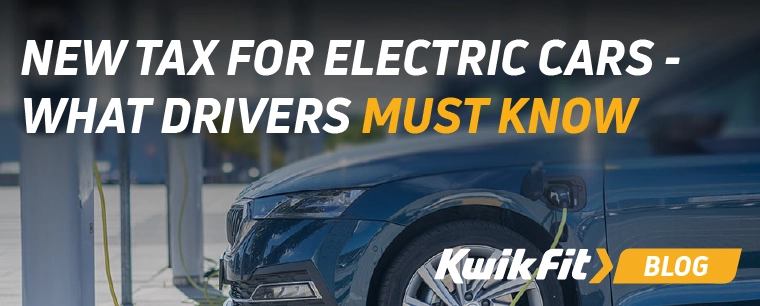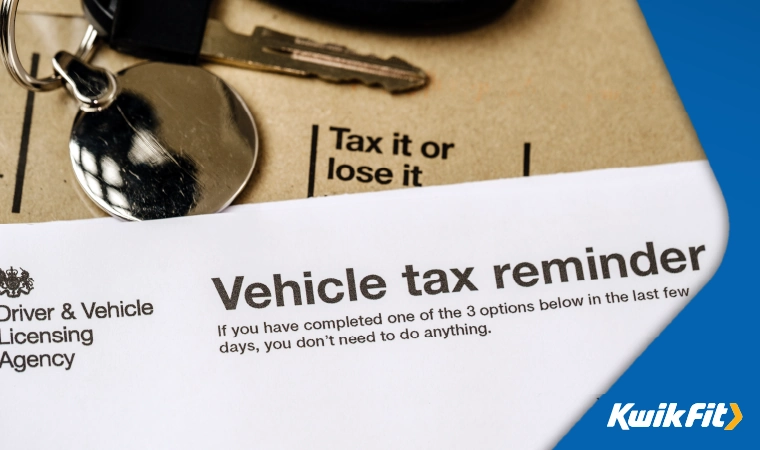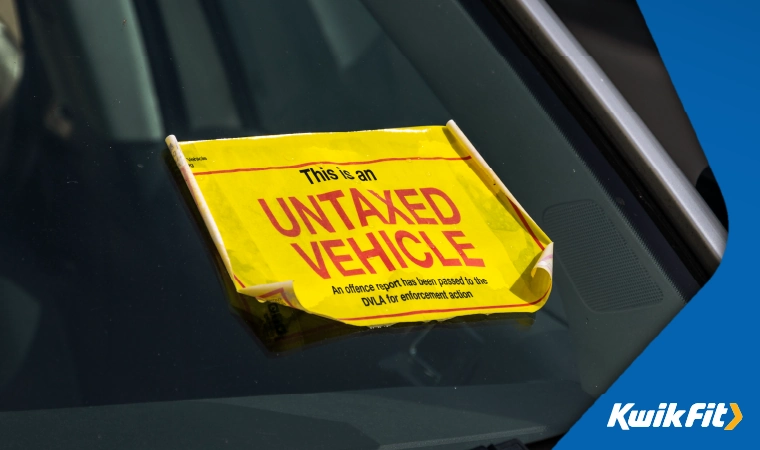New Tax for Electric Cars - What Drivers Must know
Jessica Bird | Wednesday 7th May 2025 9:34am

The road tax exemption for electric vehicles is officially over. For the first time ever, zero-emission vehicles are now subjected to VED (Vehicle Excise Duty) alongside their petrol and diesel counterparts.
After enjoying a tax-free status for years, while the UK Government took strides towards a greater uptake of low-emission vehicles, EVs are now subject to road tax. But why? And, more importantly, what implications might this have for EV drivers and ownership rates?
Whether you’re a long-time electric car owner or you’re thinking about making the switch, understanding what the new tax changes mean for you is critical. Read on to learn more about what EV drivers can expect.
The new road tax on electric vehicles

From the 1st of April 2025, drivers of electric cars must now pay road tax like regular ICE (internal combustion engine) vehicles; this includes electric, zero, and low-emission vans and motorcycles.
Any electric vehicle — whether pre-owned or bought new after the tax came into play — must comply with these regulations and begin paying VED.
How much electric vehicle road tax must drivers pay?
The amount of road tax that drivers of electric, zero, or low-emission cars must pay depends on the following factors:
- The type of electric vehicle
- When the electric vehicle was registered.
Use the table below to work out the new tax rate for your vehicle.
| Registered on or after 1st April 2025 | Initial annual tax payment of £10. Second annual tax payment and onwards of £195. |
| Registered between 1st April 2017 and 31st March 2025 | £195 |
| Registered between 1st March 2001 and 31st March 2017 | £20 |
Road tax for electric vans & motorbikes
Most electric vans will pay £345 in road tax, the standard annual tax rate for light goods vehicles. Zero-emission motorcycles and tricycles will pay £26, the standard annual tax rate for the smallest engine size.
Do hybrid vehicles have to pay road tax?
Yes, hybrid vehicles and AFVs (alternatively fuelled vehicles) also need to pay road tax. Previously, there was a £10 discount for vehicles in this category, but this has been removed.
Like regular EVs, the amount of tax paid for hybrids and AFVs depends on the date the vehicle was registered. If registered on or after April 2017, the standard rate of £195 annually applies. If registered before this date, the amount is determined by the CO2 emissions of the vehicle — which you can check on GOV.UK.
The £40k VED rule or "expensive car supplement"
If you own an electric or zero-emission vehicle that’s registered on or after the 1st of April 2025 with a list price of over £40,000, you will need to pay an additional rate known as the “expensive car supplement”.
For these expensive vehicles, the standard rates in the table above will apply, alongside an expensive car supplement paid in years 2-6 of the car’s life.
Currently, this expensive car supplement costs £410 per year from year two of your car’s life. So, in total, alongside the standard tax rate, from years 2-6 of your car’s life, you’ll be paying £605 in annual road tax if you own an EV worth more than £40,000.

Why were electric vehicles tax-exempt before now?
Electric vehicles were previously exempt from paying vehicle excise duty because they had zero tailpipe emissions, and the tax was based on carbon emissions. This exemption aimed to encourage motorists to make the greener switch to electric vehicles, in line with the UK’s legally-binding goal to reach net-zero emissions by 2050.
Alongside tax exemptions, other government schemes geared towards the net-zero goal included:
- The ban on sales of new petrol and diesel cars from 2030 onwards.
- Improving electric vehicle charging infrastructure (EG: ensuring all newbuild plots have EV chargers).
- Investing in ULEZ areas and Clean Air Zones.
Why are electric vehicles being taxed now?
It is widely accepted that the VED exemption to encourage EV uptake has done its job. Electric vehicles are becoming more accessible and, with better charging networks, the sector is believed to be able to stand on its own without tax breaks.
Another reason why EVs are now being taxed is to even the playing field, and ensure a more consistent and fairer taxation system. Lastly, VED is a major source of government revenue, so introducing this tax for electric vehicles will help the government to offset any future losses.
The rising costs of owning an electric vehicle
As with any law change, there are bound to be implications — and we can’t help but wonder what impact this taxation law will have on EV ownership levels.
Electric cars are still more expensive to purchase outright than regular ICE vehicles, though the gap is gradually closing. As we explore in our blog, 'Will Electric Cars Be More Affordable", as of June 2024, the average UK price of a new EV was £54,324.61 versus £27,228 for a regular car.
On the other hand, electric cars are generally cheaper to service and maintain, as they have fewer inner components and moving parts. Find out more about electric vehicle servicing in another of our expert blogs.

A knock-on effect for EV ownership
For many drivers who made the switch, the year-on-year tax exemption was an influential factor that took the sting out of the higher upfront cost. Now that EV drivers have to pay tax like regular drivers, will fewer motorists feel incentivised to go all electric?
Although the tax exemption days are over for EV drivers, they can still enjoy cheaper “fuel” (since electricity costs far less than petrol) and exemptions from taxes such as ULEZ and Clean Air Zone fines.
EV drivers can keep costs low with Kwik Fit
If you’re an EV owner and the new road tax feels like one more hefty cost you have to consider, Kwik Fit has you covered.
Keep your costs low with regular EV servicing from our expert technicians. We’ll check your EV battery health alongside the condition of the electric motor, drive chain, and other essential components - keeping your zero-emissions vehicle in tip-top condition, and avoiding any costly mistakes further down the line.
Get in touch with your local Kwik Fit centre today to discuss more about your EV’s running costs and our servicing options. Or, for more money-saving motoring advice, head to the Kwik Fit blog.
Any facts, figures and prices shown in our blog articles are correct at time of publication.
Featured Articles
Is it Illegal to Drive With One Headlight?
Saturday 19th July 2025
Wondering if it’s illegal to drive with one headlight? Learn about the safety risks and penalties of illegal blown bulbs and why you should fix them promptly.
Air Con in EVs & Hybrids: Experts Answer Your Questions
Monday 30th June 2025
Does air con drain EV batteries? Can you use the air con while charging an electric car? Find out the answers to these questions & more from Kwik Fit’s experts.
Why Is Your Car Making a Noise? Fixes & Tips
Friday 13th June 2025
When your car starts making unexpected noises, it can certainly be quite disconcerting; it may be nothing to worry about, but here’s what you need to know.









